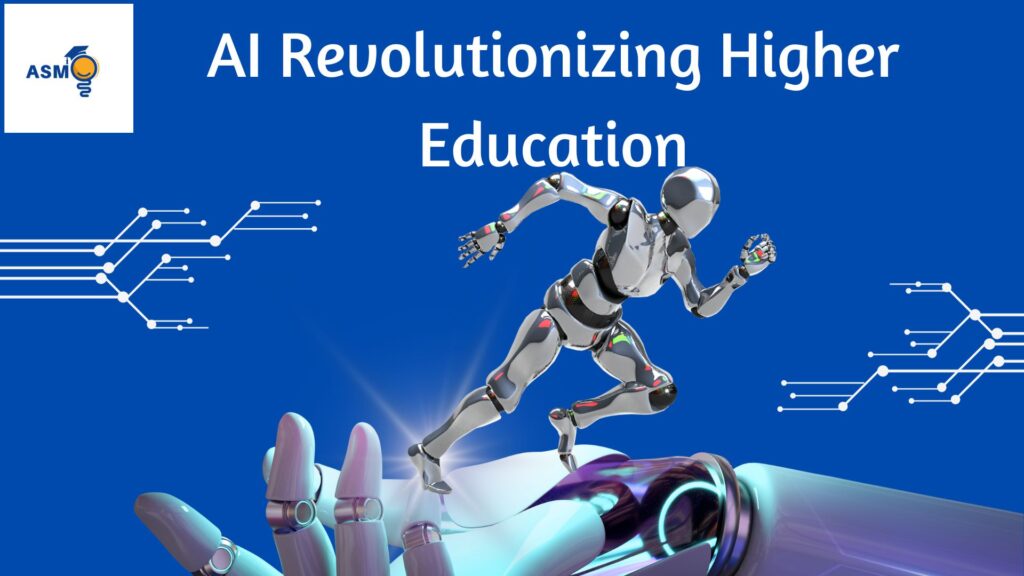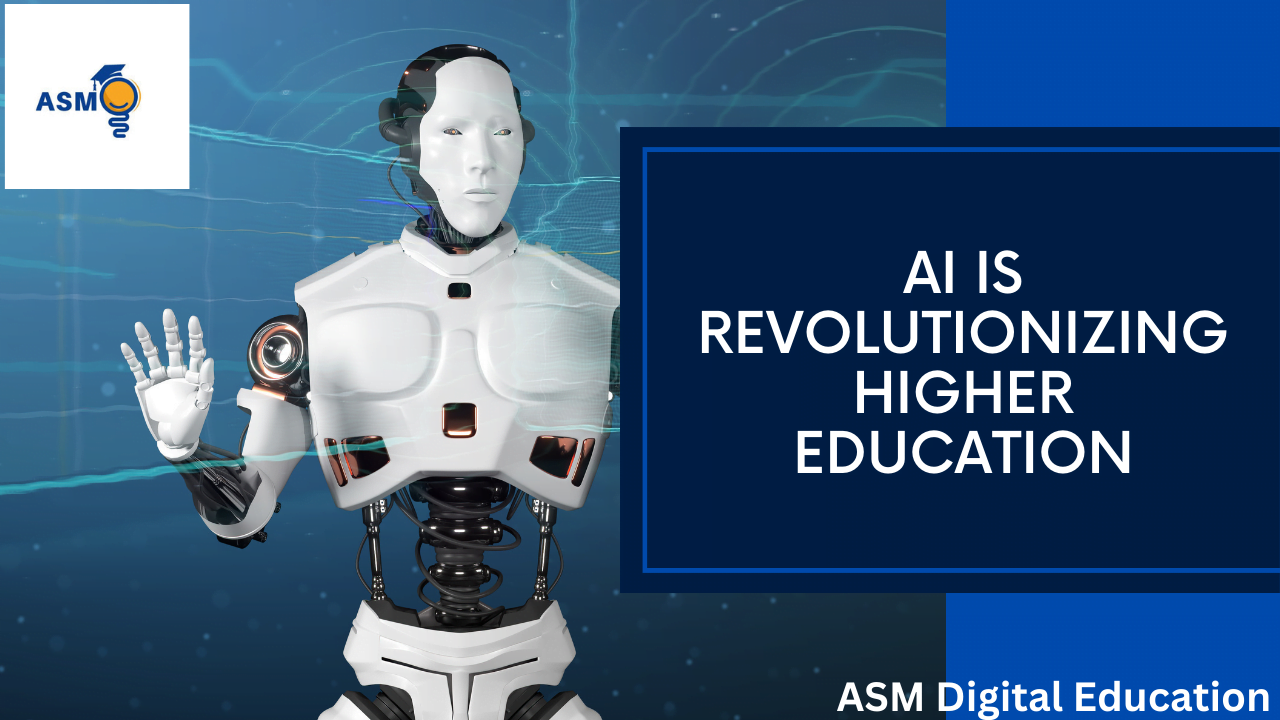THE TRANSFORMATIVE IMPACT OF AI AND HIGHER EDUCATION, REVEALS HOW TECHNOLOGY SHAPES ACADEMIC LANDSCAPES FOR THE BETTER
Artificial Intelligence:
Gone are the days when education was limited to classrooms and textbooks. With the rapid advancement of technology, artificial intelligence (AI) is playing a significant role in transforming higher education. From personalized learning experiences to improved teaching methods, AI is revolutionizing the academic landscape.
AI has immense potential in the field of education. By harnessing the power of AI, educators can tailor instructional content to meet the individual needs and learning styles of students. This adaptive approach ensures that students receive personalized guidance and support, leading to better academic outcomes. Additionally, AI technologies can assist teachers in identifying knowledge gaps and designing more impactful courses and curriculum.
Artificial Intelligence: The utilization of AI-powered learning platforms is another crucial aspect of its role in higher education. These platforms employ AI algorithms to analyze student data and provide customized recommendations for learning. By understanding each student’s strengths and weaknesses, AI can facilitate targeted interventions, ultimately enhancing student engagement and performance.
AI is not only transforming learning but also revolutionizing grading and assessment processes. AI-assisted grading systems offer efficiency and fairness while reducing the burden on educators. With AI, grading can be standardized and objective, ensuring consistent assessments across different courses and institutions. However, concerns about algorithm bias and the potential for AI to replace human educators need to be carefully addressed.
Furthermore, AI-powered student support systems are changing the way institutions provide assistance to learners. Virtual assistants and AI chatbots offer round-the-clock personalized guidance, addressing queries, and providing support whenever needed. Predictive analytics can also identify students who may be at risk of falling behind, enabling timely interventions to ensure their success.

Artificial intelligence is revolutionizing higher education.
- AI can personalize learning experiences and improve teaching methods.
- AI-powered learning platforms analyze student data and provide personalized recommendations.
- AI-assisted grading offers efficiency and fairness but raises ethical concerns.
- AI-powered student support systems provide personalized guidance and timely interventions.
The potential of AI in education
Artificial Intelligence (AI) has the potential to revolutionize education, offering new opportunities to enhance learning experiences, improve teaching methods, and boost student outcomes. By leveraging AI technology, educational institutions can unlock a world of possibilities that cater to the diverse needs of learners and instructors.
Personalized Learning Experiences
One of the key advantages of Artificial Intelligence in education is its ability to create personalized learning experiences. AI algorithms can analyze vast amounts of student data, such as performance trends, learning preferences, and knowledge gaps. This data-driven approach allows educators to tailor instruction to individual learners, ensuring that they receive the support they need to succeed.
Artificial Intelligence can also enhance teaching methods by providing innovative tools and resources to educators. Intelligent tutoring systems, for example, can simulate one-on-one interactions with students, offering personalized feedback and guidance. Additionally, AI-powered virtual reality (VR) and augmented reality (AR) technology can provide immersive learning experiences, making complex concepts more engaging and accessible.
Improved Student Outcomes
AI has the potential to improve student outcomes by identifying areas of improvement and delivering targeted interventions. By analyzing student data, AI algorithms can identify patterns and trends in performance, allowing educators to intervene proactively. This data-driven approach empowers educators to address challenges early on and provide timely support, ultimately leading to improved student achievement.
“AI in education has the power to transform the way we teach and learn. By harnessing the potential of AI, we can create a more personalized, adaptive, and engaging educational experience for all students.”
– Dr. Jane Smith, Education AI Expert
Examples of AI Applications in Education
| Application | Benefits |
| Intelligent Tutoring Systems | Personalized feedback and guidance |
| Automated Grading | Efficiency and consistency in assessment |
| Predictive Analytics | Early identification of at-risk students |
| Adaptive Learning Platforms | Individualized instruction based on student needs |
As demonstrated in the table above, the potential applications of AI in education are diverse and far-reaching. From intelligent tutoring systems to adaptive learning platforms, AI is transforming the way we approach teaching and learning.
In the next section, we will explore the role of AI-powered learning platforms in higher education, delving into how these platforms leverage AI algorithms to provide personalized recommendations for students.


